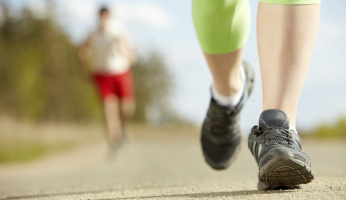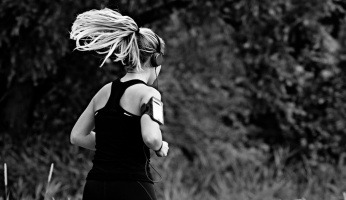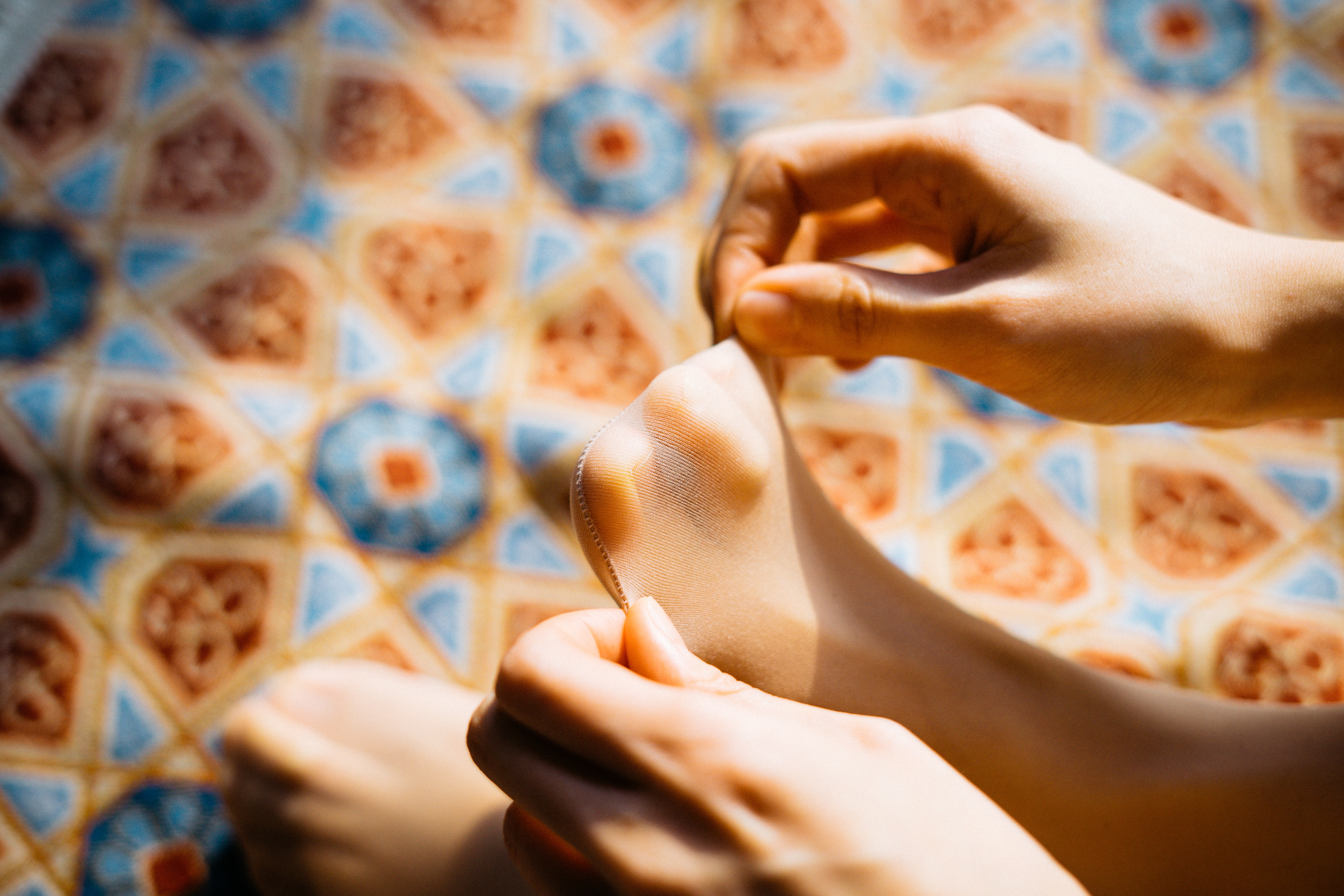Why Am I Getting A Headache After Running?

When I think of a headache after running my mind immediately goes to dehydration, misalignment, and exhaustion. A headache can turn a beautiful day gloomy. Headaches can make you stop dead in your tracks from the pain. They can be downright debilitating.
There are over 150 different types of headaches that can occur, either primary or secondary. A primary headache occurs independently, such as a migraine, cluster headaches, or tension headaches. While a secondary headache is due to an underlying cause, like an untreated medical condition or illness.
Primary Headaches
Primary headaches that are brought on by exercise alone are also known as primary exertion headaches. These headaches usually occur during exercise or after you finish your workout. The primary exertion headache covers both sides of the head and is accompanied by throbbing pain. And these headaches should not be confused with an exertion-induced migraine.
These headaches usually last for approximately 5 minutes to 2 days. And they are associated with warmer weather and higher elevations. But, the true cause is unknown.
Treatments
Primary exertion headaches are commonly limited to a 3-6 months span. So, some recommendations are as follows:
- Try warming up prior to exercise
- Over the counter (OTC) medication (naproxen, ibuprofen, acetaminophen)
- Prescription medications (beta-blockers or indomethacin)
- Increase exertion at a slower pace
- Omit exercises that trigger the headaches
Due to the limiting nature of primary exertion headaches, it is recommended to stop the treatment regimen for 6 months to assess the need for a continuance.

Preventative measures include some of the same measures you would use for treatment. Since primary exertion headaches usually occur during warm temperatures or at high elevations, you may want to avoid exercise during these times. It may also be helpful to take either your prescribed medication or OTC 1-2 hours prior to exercise.
Due to the nature of a secondary exertion headache being linked to an underlying medical condition, it is vital that you consult your Physician or PCP if your headaches are accompanied by vomiting, blurred vision, a stuffy nose, or stiffness in your neck.
Other Causes for Headaches After Running
Some other causes of headaches with activity are as follows:
- Dehydration
- Heat exhaustion/too much sun exposure
- Low blood sugar levels
- Your form is off
With all of these causes, having a few preventative measures in place could save your life and prevent a headache from occurring or reoccurring. Below will be a few things you can do to prevent experiencing dehydration, low blood sugar levels, heat/sun exhaustion, and bad form.
When I am about to go for a run I always see carbohydrates, electrolytes, and water as imperative components to me getting through the workout without feeling dizzy, light-headed, shaky, exhausted, and overheated. It is important to always listen to your body.
Dehydration
To prevent and treat dehydration, you may want to drink a glass or 2 of water prior to going out for a run. Also, carrying a bottle of water with you while you run is helpful.

Hydration belts come in handy because it is usually a belt that goes around your waist and has 1 or 2 small water bottles attached to it. This allows your hands to remain free. For hiking, hydration packs are a beautiful option.
Too Much Sun Exposure
For heat exhaustion or excess sun exposure, I personally would reschedule my workout or run to another day or time of day that is cooler. Running indoors is an option also. But, if you have already planned everything out and cannot skip a day of exercise, please take a cooling cloth, or a towel you can put cool water on and place around your neck with you for your workout.
Stay hydrated! And wearing a wide-brimmed hat and shades can help to provide shading from the sun. OTC medications, like ibuprofen or acetaminophen, are helpful if you are not able to take the above steps to cool down.
Low Blood Sugars
The 3 nutritional life sources are carbohydrates, fat, and protein. We need all of them. They play a dynamic role in making sure your body is fueled and able to function. So, make sure you are consuming well-rounded meals leading up to your exercise days.

I feel like it is helpful to have a snack in your car or fanny pack or cash on you to buy a snack. Just in case you start to feel shaky, lightheaded, or confused. You only need to consume around 15 grams of carbohydrates to relieve these symptoms, but you will need to consume something heartier soon for the symptoms not to reoccur.
Before I head out for a run I eat a bowl of fruit and I always have a snack handy. Some snacks or items that contain 15 grams of carbohydrates or more are as follows:
- ½ cup of mixed nuts
- Tennis ball-sized apple
- 7 pieces of dried apricot
- 5-6 dried dates
- Tennis ball-sized orange
- 3 dried prunes
- A packet of honey
- 2 tbsp of peanut butter
Your form
When you are about to start any exercise, it is important to warm up and do a few stretches. This helps you to be more relaxed and prepare your muscles for the task ahead. Sometimes while running we can hold tension in our shoulders and neck. This tension can lead to a headache.
- Shoulder raises: raising your shoulders to your ears, hold, and repeat 5 times
- Shoulder rolls: raising your shoulders up to your ears then rolling them back and around 10 times in both directions
- Ear to shoulders: tilt your head to your shoulder without straining and hold for 30 seconds on both sides left and right
All of these exercises should be done in an upright position and may be done standing or sitting. You may also consult a personal trainer for an evaluation of your running form.
As stated earlier, if you are experiencing headaches all of a sudden and are not aware of any other underlying medical conditions, consult your Physician or PCP.
Sources
- , Carbohydrate food list, University of Michigan
- , 12 Stretches to Help Relieve Tight Shoulders, Health Website
- , Headache Information Page, National Institute
- , Exercise headaches, Mayo Clinic
- , Primary Exercise Headache, American Migraine Foundation















